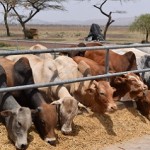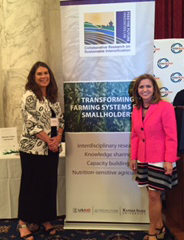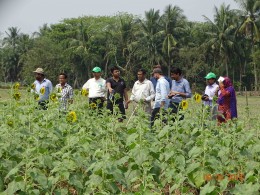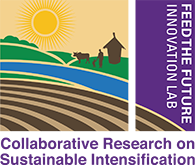 Two teams of researchers at Kansas State University have been awarded over $1.1 million to investigate beef and dairy cattle systems, as well as mycotoxins in livestock feed, in Ethiopia. The projects, funded under the Feed the Future Innovation Lab for Livestock Systems (LSIL) in a four-year Reach grant and a one-year Focus grant, will employ a systems-based research approach that strengthens linkages between improved animal-source food production, consumption practices and human nutrition outcomes.
Two teams of researchers at Kansas State University have been awarded over $1.1 million to investigate beef and dairy cattle systems, as well as mycotoxins in livestock feed, in Ethiopia. The projects, funded under the Feed the Future Innovation Lab for Livestock Systems (LSIL) in a four-year Reach grant and a one-year Focus grant, will employ a systems-based research approach that strengthens linkages between improved animal-source food production, consumption practices and human nutrition outcomes.
Jessie Vipham, assistant professor of global food systems and nutrition, and Dustin Pendell, associate professor of agricultural economics, will serve as principal investigators of the $1.04 million Reach grant. Deon van der Merwe, associate professor of toxicology, will lead the Focus grant. Both projects utilize expertise from K-State’s College of Agriculture, the Feed the Future Innovation Lab for Collaborative Research on Sustainable Intensification (SIIL), the Feed the Future Innovation Lab for Collaborative Research on Sorghum and Millet (SMIL), the Feed the Future Innovation Lab for the Reduction of Post-Harvest Loss (PHL) and the College of Veterinary Medicine.
“An exciting component of both of these projects is that they have combined the expertise of K-State faculty from several disciplines with the international research networks of multiple K-State Feed the Future Innovation Labs,” Vipham said. “It is a great example of the research capacity that exists at K-State.” Continue reading “K-State researchers awarded $1.1 million to address challenges in livestock systems in Ethiopia”
 So, you got your degree. Congratulations!! Welcome to the real world. You are probably asking yourself, “What now?” Turns out that earning your degree was just the first step, now all you have to do is decide what you want to do for the rest of your life. No pressure.
So, you got your degree. Congratulations!! Welcome to the real world. You are probably asking yourself, “What now?” Turns out that earning your degree was just the first step, now all you have to do is decide what you want to do for the rest of your life. No pressure.



